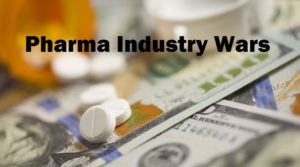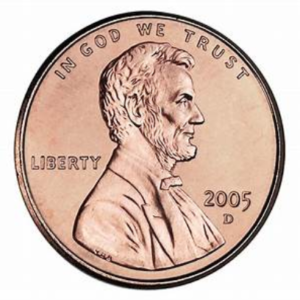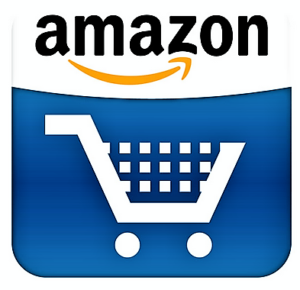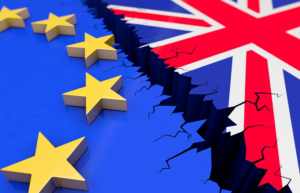- Reform to lower prescription drug prices, save up to NIS 200m. ($55,763,000) (jpost.com)
High-priced prescription drugs will soon become 5% cheaper, thanks to simplification of the mechanism that controls their maximum permitted prices. This will lead to savings of NIS 150m. to NIS 200m., the Treasury and Health ministries announced...“This is an additional step to reduce the cost of living and make health more accessible to the public,” Finance Minister Moshe Kahlon said. “This change is part of a series of steps we have taken in the past three years to strengthen the public health system”...ministries have been working on implementing a reform in the mechanism for determining the maximum prices of prescription drugs...The committee carried out international reviews and consultations with representatives of health funds and the pharmaceutical companies. It decided to revise the drug price-control model to bring down the prices of expensive prescription drugs and increase the supply of inexpensive medications...
- Pharma, under attack for drug prices, started an industry war (washingtonpost.com)
It’s not easy to get Americans mad at a behind-the-scenes industry they’ve barely even heard of, but pharmaceutical companies have spent most of this year trying...With national and state advertising campaigns, white papers and cartoon infographics, the powerful and well-funded drug-industry lobby spent 2017 working to redirect public anger about drug prices to pharmacy benefits managers: links in the supply chain that sits invisibly between the patient and the drugmaker — in the process bringing a long-simmering feud between two big health-industry players into the open...the drug companies’ fight with PBMs and insurers has helped thwart any real action — splintering the problem into a multi-industry echo chamber of accusations that’s hard to comprehend, much less solve...“This has been a year of finger-pointing,”...“They’re flooding the zone — with ‘they’ being pharma — with efforts to diffuse and deflect the focus on their role in drug pricing. Part of the policy challenge is they have a point.”
- Heated And Deep-Pocketed Battle Erupts Over 340B Drug Discount Program (khn.org)
A 25-year-old federal drug discount program has grown so big and controversial that it faces a fight for survival as federal officials and lawmakers furiously debate the program’s reach...The program, known as 340B, requires pharmaceutical companies to give steep discounts to hospitals and clinics that serve high volumes of low-income patients...The Centers for Medicare & Medicaid Services...cut Medicare payments for hospitals enrolled in the program by 28 percent...About 40 percent of the hospitals in the U.S. now buy drugs through the program...the hospital lobbying group 340B Health, said that for some small, rural hospitals the funding cut “could actually be the difference between staying open and closing.”...those supporting the cut, including drugmakers, argue that the program has grown beyond its original intent because hospitals have pocketed the discounts to pad profits — not to help indigent patients...Stephen Ubl, president of drug industry group PhRMA, said the program “needs fundamental reform” and that the latest rule change is merely a good first step. His group, which has deep pockets and an advertising campaign geared at pinpointing the program’s flaws, has a list of changes that Congress and the Trump administration could tackle. Those include limiting which hospitals should be eligible for 340B price breaks and making sure needy patients benefit when hospitals buy discounted drugs.
- Federal judge refuses to halt diabetes drug transparency law (reviewjournal.com)
A federal judge...denied a request by pharmaceutical companies to immediately block a Nevada law requiring them to detail diabetes drug prices and disclose manufacturing costs and research investments come July...The reason, he said: July is more than nine months away...“I don’t see immediate and irreparable harm here,” U.S. District Judge James Mahan said after hearing arguments for and against the request in Las Vegas. Mahan said he might reconsider if the request were made in March or April, but he facetiously added, “My crystal ball is broken.”...At Tuesday’s hearing, Robert Weiner, who represented the pharmaceutical groups, argued that acts as a penalty for companies wanting to raise prices after Nov. 1 and before the July disclosure date...“This is a competitive disadvantage, and it chills us now,” Weiner said...Arguing against the injunction, Las Vegas Chief Deputy Attorney General Linda Anderson said the law is intended to protect diabetes patients in Nevada.
- ‘Penny-a-pill’ funding fades under pressure from pharmaceutical industry (mprnews.org)
When supporters rolled out what they called "penny-a-pill" legislation last month, they described it as a bipartisan effort to raise needed money to combat the opioid overdose epidemic ...But the legislation faces an uncertain future after strong opposition from pharmaceutical companies and some business interests...The legislation...would charge pharmaceutical companies a fee for every opioid painkiller they sell. That would raise an estimated $20 million in continued funding for abuse prevention efforts, wider access to the overdose medication naloxone and more resources for treatment...the House version of the bill no longer includes the fee on manufacturers. Instead, money for the programs would come out of the state general fund, which would be one-time funding.
- Artificial Intelligence: will it change the way drugs are discovered? (pharmaceutical-journal.com)
The pharmaceutical industry is beginning to invest in artificial intelligence (AI), with many large pharmaceutical companies partnering with AI start-ups in 2017 in order to develop better diagnostics or biomarkers, to identify drug targets and to design new drugs. But when will the first AI-designed drugs reach the market and will AI permanently change the pharmaceutical industry and the way drugs are discovered?...Harnessing the power of modern supercomputers and machine learning will enable us to develop medicines more quickly, and at a reduced cost...The technology has just taken off recently and primarily that’s due to the advances in deep learning that have demonstrated superhuman accuracy in image recognition and autonomous driving...We are starting to see AI can outperform humans when analysing very complicated datasets for high content, phenotypic drug discovery...The [AI] technology is allowing us to explore a much bigger design space and discover these rare molecules that have properties beyond what we would get if we just ran a traditional high throughput screen...We can benefit from computer modelling but we still need to conduct real experiments and there will still be an element of serendipity...
- Amazon tells regulators it will not sell drugs (biopharmadive.com)
Amazon.com Inc.'s filings with state pharmaceutical regulators reveal the company is not looking to sell drugs on its marketplace...The filings to distribute to at least 12 states from three facilities in Indiana reveal Amazon could distribute medical devices, supplies, gas or pharmaceuticals from the warehouses. However, to distribute drugs the company would likely also have to pursue a deal with a pharmaceutical benefits manager...In correspondence with regulators in Tennessee and Indiana, Amazon explicity (explicitly) said it would not "store or ship drugs," tempering rumors that the company would move into the pharmacy business in the near term...Spinners have spread rumors Amazon will soon disrupt the pharmaceutical supply chain, but it turns out the opposite is true: drugs, at least, are safe from e-commerce — but medical distributors are not so lucky...Companies like McKesson Corp. and Cardinal Health Inc. have long had a stranglehold on the medical supply distribution market, serving as middlemen between countless suppliers and the dozens of hospitals and clinics they serve. As healthcare providers continue to consolidate, so does suppliers' opportunities to sell to big clients...pharmaceutical companies and healthcare providers alike should watch the e-commerce giant's healthcare experiment with interest, as its success will likely anticipate further expansions — either in distribution or logistics.
- Venezuela $5 Billion In Debt To Pharmaceutical Companies Offers Gold, Diamonds For Medicine (ibtimes.com)
The cash-strapped government of Venezuela offered to trade gold, diamonds and coltan, a rare metal used in cell phones, to pharmaceutical companies the country owes $5 billion in exchange for medicine...Venezuela’s health minister Luis López offered several pharmaceutical companies the goods as an alternative payment for medicine to help stock the bare shelves of the country’s hospitals. Venezuela is $5 billion in arrears to pharmaceutical companies. Tito López who heads, Venezuela’s Pharmaceutical Industry Chamber told the paper that up to 95 percent of medicines available in the country three years ago are no longer there...It’s unclear whether any pharmaceutical company accepted the offer...The attempt at bartering for medicine showcased the dismal economic situation in Venezuela that could be up to $150 billion in debt. Financial mismanagement and a drop in oil prices, a commodity the country relied on, have led to the humanitarian crisis the country now finds itself in. The country also faces U.S. financial sanctions because of the country’s restrictive communist government which the U.S. has called corrupt.
- EMA Updates Brexit Guidance (biopharminternational.com)
The agency and the European Commission published updated guidance to answer questions about Brexit...On Dec. 1, 2017, the European Medicines Agency and the European Commission published updated guidance for pharmaceutical companies regarding the United Kingdom’s withdrawal from the European Union. The new guidance answers additional questions about marketing applications and authorizations...New in this update is more information on batch release sites located in the UK, which must be located in the EU; the effect on herbal medicinal products; and applications for orphan drug designation. The guidance also discusses the local representatives in the UK mentioned in product information, global marketing, and the sunset clause.
- The Unhealthy Politics of Pork: How It Increases Your Medical Costs (nytimes.com)
No industry in America spends more on lobbying than health care...In 2016, the health care industry spent half a billion dollars on lobbying, with pharmaceutical companies, hospitals and health professionals making the largest contributions...Closely related to industry lobbying is the political maneuvering that congressional leaders use in an effort to pass legislation — specifically, targeted provisions known as earmarks, “sweeteners” or pork barrel spending...In 2010, Democrats hoping to secure votes from reluctant rural state senators added the “Frontier States” provision to the A.C.A., which increased Medicare payments to five states with low population densities...We all know earmarks and lobbying influence policymakers and policy. In health care, this has critical implications: who gets care, how much they get, how we pay for it. But there’s little hard data on exactly who benefits and how large the effects can be. A new study illuminates the ways these political dynamics can change congressional and hospital behavior — and how they can increase health care costs for the rest of us...America’s increasingly burdensome health care spending has many roots: new technologies, high drug prices, fragmented care, administrative expenses and the like. But lobbying and political maneuvering can increase costs, too — without clear benefits for patients, communities or society at large...Often these costs are borne by all of us, while the benefits — if any — go to a favored few. Excess medical spending, then, is driven not only by inefficiencies in our health system, but also by those in our political system. Our solutions, it seems, must confront that uncomfortable reality.










